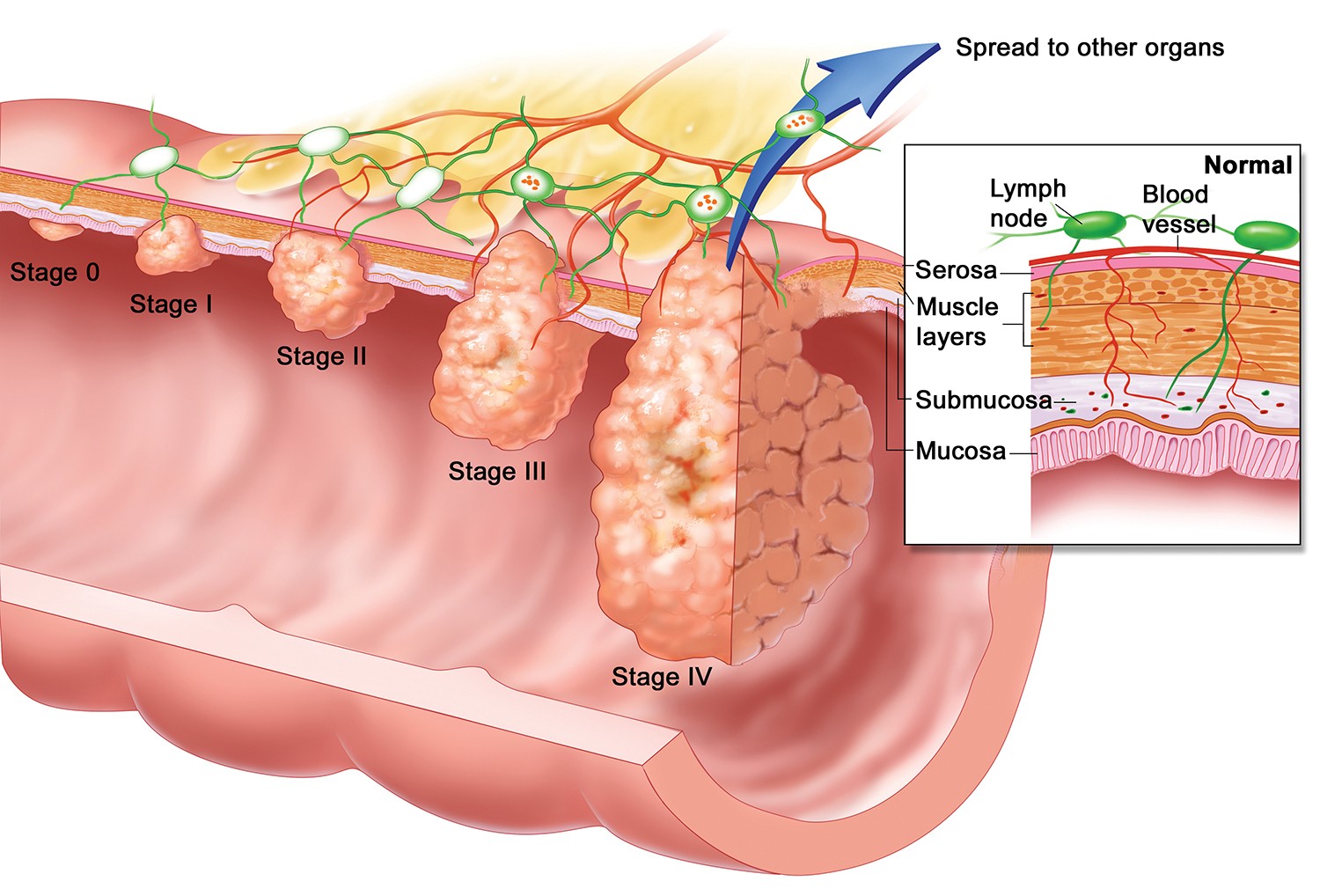Colorectal Cancer Awareness Month

Because It Can’t Wait Until Tomorrow!
Yes, the word “colon” can be an awkward word, but isn’t the word “cancer” worse?
Among cancers that affect both men and women, colorectal cancer (cancer of the colon or rectum) is the second leading cause of cancer deaths in the United States. Every year, about 140,000 Americans are diagnosed with colorectal cancer, and more than 50,000 people die from it. But this disease is highly preventable, by getting screened beginning at age 50.
Colorectal cancer, also known as colon cancer or cancer of the rectum, is the second leading cause of cancer deaths in the United States. Each year, roughly 140,000 Americans are diagnosed with this disease and more than 50,000 people die from it. This diagnosis affects people in all racial and ethnic groups and is typically found in people 50 years of age and older. However, incidences of this cancer is on the rise in those younger than age 50.
The good news? A routine screening for this type of cancer could potentially prevent six out of ten deaths. Therefore, it is vitally important for communities, healthy professionals and families to work together to encourage people to get screened. Welcome to Colorectal Cancer Awareness Month, a time to raise awareness about colorectal cancer and take action towards prevention, breaking the silence and sharing information so this disease can be eradicated.

What exactly is colorectal cancer? This is a type of cancer that occurs in the colon or rectum. The colon is a part of the large intestine or large bowel. The rectum is the passageway connecting the colon to the anus. When discovered early, colon cancer is highly treatable. Even if it spreads into the nearby lymph nodes, surgical treatment followed by chemotherapy has proven to be highly effective. When the cancer has spread to other organs, such as the liver and lungs, treatment can help make surgery an option for many patients and can also prolong one’s life and the quality of that life. Prior to cancer even developing, polyps may first appear, which are abnormal growths inside the colon or rectum. These can become cancerous down the road if not removed. Fortunately, researchers are continually striving to learn more, providing hope for patients no matter the stage of their cancer.
Why is a screening for this type of cancer so important? It is no secret that colorectal cancer screening saves lives. It is actually one of a few cancers that can be prevented through screening, and that is why it is important to build awareness as a way to decrease mortality rates. Screening tests are designed to find precancerous polyps so they can be removed. Screening can also find this cancer in its early stages, when treatment is far more effective.
There are a few things you can do now to potentially avoid colorectal cancer, and the brief amount of time it takes you to act on these is well worth the effort. If you are between the ages of 50-75, you should get screened for colorectal cancer on a regular basis. For those between the ages of 76 and 85, inquire of your doctor if you should be screened.
Outside of the screening, commit to engaging in a physically active lifestyle and maintaining a healthy weight. Avoid excess alcohol and don’t smoke or quit smoking if you have the habit. While we cannot stop the hands of time, as the risk of developing this cancer does increase with age, we can incorporate healthy habits as a preventative measure.
A screening for colorectal cancer is so important and should not be avoided. You could have polyps and not even know it. Precancerous polyps and colorectal cancer don’t always produce symptoms in the early stages. Some of the typical symptoms that occur may include blood in or on bowel movements; stomach aches, cramps and pain that do not go away; and unexplained weight loss. Certainly, these symptoms could be associated with another underlying condition, but it is important to get the screening to rule out or determine if it is colorectal cancer.
Some people are at a higher risk of getting colorectal cancer than others, and if you believe you might be at risk, it is important to have a conversation with your doctor to determine when you should begin screening, which test is appropriate for you, and how often you should get screened.

There are many screening test options available, and these include a colonoscopy, recommended every 10 years; a high-sensitivity guaiac fecal occult blood test (FOBT) or a fecal immunochemical test (FIT), recommended annually; a sigmoidoscopy (every 10 years, with FOBT or FIT every three years); a sigmoidoscopy alone (every 5 years); a Stool DNA test (FIT-DNA) every one or three years; and a CT colonography (or virtual colonoscopy) every five years. A conversation with your doctor will help you determine which screening test is the right one for you.
During this month of Colorectal Cancer Awareness, what can we do to make a difference? One of the easiest things to do is to encourage families to get active together. Exercise is a perfect way to reduce your risk of developing colorectal cancer. Communicate with family, friends and others in your community about the importance of routine screenings, especially for those age 50 or older. Encourage doctors and nurses to speak with patients about the importance of getting screened.
Meaningful action is the result of increasing awareness, and to that end there are numerous ways to become involved in this noteworthy initiative. Awareness events can be big or small and can take place at workplaces, sports arenas, doctor’s offices, churches and schools. The event can be all about colorectal cancer or just a part of a larger event, such as a wellness fair. A significant movement is One Million Strong, which is Fight Colorectal Cancer’s movement uniting the over one million survivors of this disease.
If you have been impacted by colorectal cancer, you can become an ambassador, someone who is the “face” of the disease. Through your story, you can champion awareness and become involved in the advocacy. Turn to social media as yet another way to increase awareness. Spreading the word is key. If you have been affected by this disease, sharing your story is a great first step to getting involved. If you prefer to do something a bit less public, consider a donation to fund research efforts that will have the greatest possible impact and improve the quality of life or patients during and after treatment.
With March as Colon Cancer Awareness Month, it is time to be prepared to fight, support and advocate. Trust your gut on this one. Colorectal cancer is preventable, treatable and beatable. For more ways to get involved this month, go online at fightcolorectalcancer.org.
Sources: healthfinder.gov, cdc.gov, ccalliance.org, sgna.org and fightcolorectalcancer.org.






